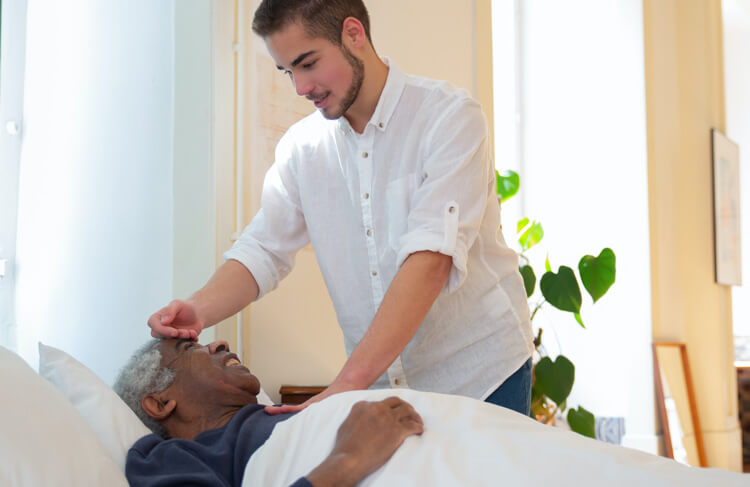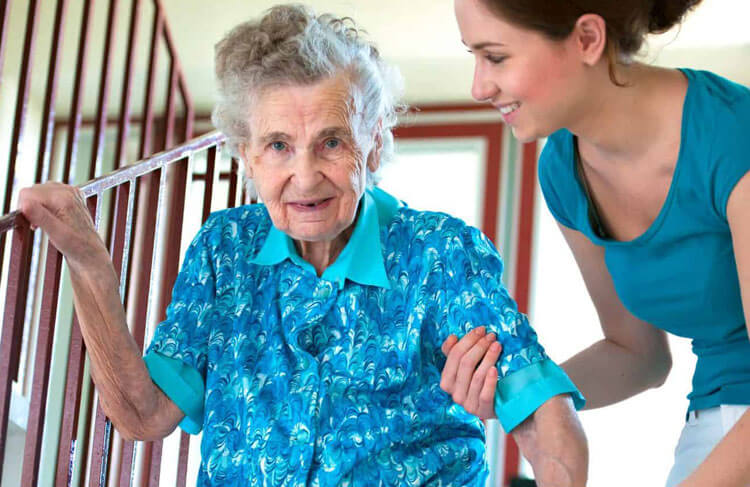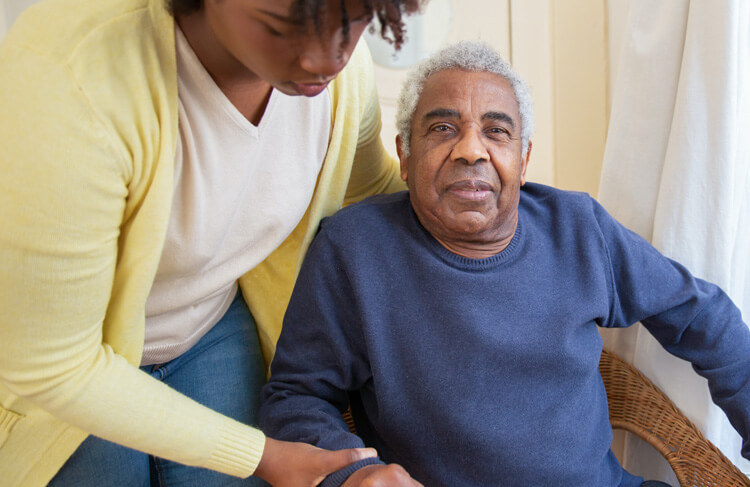General FAQs

Yes. Oftentimes people go to therapy only two or three times a week depending on their insurance and payment options. The responsibility for improvement falls on the individual, too. The stretching and strengthening exercises must be done daily, sometimes multiple times a day. You are not going to get the progress or improvement you need just relying on going to your therapy visits, so you must do exercises at home. And, by the way, we can always tell if someone is being good about doing his or her home exercise program or not.
Great question! Physical therapy deals with the entire body, anywhere from the inner ear and vision to the arms and legs. Physical therapists look at the body as a whole and are focused on getting people up and walking and working on balance, overall strength, and core strength. Occupational therapy specializes a little more in the upper extremities, arms, and hands. OT is very task-related and goes more in-depth with someone’s fine motor skills, memory-type exercises, and cognitive strategies. Often PTs and OTs collaborate with others on a therapy team—doctors, nurses, social workers, speech therapists, recreational therapists, and music therapists.
We specialize in older adults, but we currently have clients from teenage through all adult ages. We do not serve children.
Yes! We have national contracts that give us patients wherever we have therapists, and thus we can open your area so you can get cases even if we do not currently have anyone there. We love expanding our coverage area! More details here: https://activeinhometherapy.com/employment-opportunities/
Yes. All our therapists are licensed to practice their modality (Physical Therapy, Occupational Therapy, or Speech Therapy) in the state of California. We make sure we always get the updated copy of their license, and thus we always have up-to-date licenses for each of our therapists.
Not necessarily. For Medicare cases, the doctor has usually already defined how many visits are needed. For private patients, the therapist works with the family to come up with goals and determine the frequency and duration of treatment. We have had patients who required visits 4 times a week, and one patient meets with us once a month to guide the family on how to best help her while we are not there. The family can also always cancel treatment (with a day’s notice).

Physical Therapy FAQs
The goal of physical therapy is to help individuals regain the physical mobility, strength, and endurance needed to live as independently as possible.
- If you have fallen or are afraid of falling.
- You feel unsteady whilst walking.
- You feel weak or tired because of a recent or chronic illness.
- You have joint or muscle pain.
- You would like to improve strength or prevent future decline.
- You are post-stroke and working to regain function.
- You are post-surgery and ready to restore strength and functioning.
- It’s easier to train caregivers & family members in your own environment.
- Immediate problem solving for in-home situations.
- No need to arrange for transportation. Less fatiguing for the patient.
- Fall prevention screening is specific to the home.
- Home safety assessment.
- Fall prevention training.
- An individualized home exercise program.
- General conditioning.
We provide services on a private pay basis; however, our services may be covered under Medicare benefits.


Occupational Therapy FAQs

Occupational therapy teaches how to do things many of us take for granted, like toilet hygiene, dressing, eating unassisted, and socializing. People of all ages receive occupational therapy to help them participate in the activities of daily life.
Home-based therapy helps to maximize a person’s activity level in their own home. Occupational therapists take into account the home layout and equipment requirements when creating a personalized plan for care.
Home-based therapy helps to maximize a person’s activity level in their own home. Occupational therapists take into account the home layout and equipment requirements when creating a personalized plan for care.
- Are you looking to regain or maintain a level of independence that will allow you to age in place for as long as possible?
- Do you find yourself socializing less with family, friends and participating less in the community?
- Has it become difficult to carry out your daily routine, mobilize around your home or the community, bathe, groom, dress, cook, self-feed or complete toilet hygiene?
- Are you recovering from surgery or other various medical conditions, where you need to regain important life supporting skills?
Our focus is to help you to complete daily tasks and routines with the utmost safety and independence. This will require assessment and training of the tasks themselves within the home with a skilled Occupational Therapist. It may involve assistive devices and technology or adaptations to your home environment. Ultimately, we will help you reach optimum lifestyle goals to maintain independence and improve your quality of life at home.
- An individualized evaluation of performance skills.
- An assessment of activity demands.
- A customized intervention program to improve the client’s ability to perform daily activities/tasks to reach the goals .
- An outcomes evaluation to ensure that the goals are being met and/or make changes to the intervention plan.
- Recommendations for durable medical equipment, home adaptation/modification, assistive devices and technology as needed.
We provide services on a private pay basis; however, our services may be covered under Medicare benefits.

Speech Therapy FAQs
Speech Therapy focuses on three areas; communication, cognition, and oral functioning.
- Communication involves expression, such as the way we form speech sounds, the words we use, our ability to be appropriately loud, have a clear voice, and speak without becoming out of breath. Communication also involves hearing and understanding what is spoken to us.
- Cognition underlies all communication, including memory for what is said, following directions, recalling recent events, and orientation.
- Oral functioning involves chewing and swallowing (including difficulties with drooling, eating and swallowing).
Speech therapy is required if you suffer from any of the following disorders:
- Articulation disorders: Difficulties producing sounds in syllables or saying words incorrectly to the point that listeners can’t understand what’s being said.
- Fluency disorders: problems such as stuttering, in which the flow of speech is interrupted by abnormal stoppages, repetitions (st-st-stuttering), or prolonged sounds and syllables (sssstuttering).
- Resonance or voice disorders: problems with pitch, volume, or quality of the voice that distracts listeners from what is being said.
- Dysphagia/oral feeding disorders: difficulties with drooling, eating and swallowing.
Speech therapy will include an evaluation to determine if any needs are present. Next, the speech therapist works with the client to find methods to compensate or restore adequate functioning. Therapists work with the client to determine the best approach. Common approaches are:
- Education and training to the structure and function of the language, cognition, speech, and swallowing mechanism.
- Exercises for oral motor function.
- Exercises for language and cognition.
- Use of compensatory strategies.
- Modification of the home environment.
We provide speech therapy home care services on a private pay basis; however our services may be covered under Medicare benefits.

Elder Care Resources
Healthcare Specialists:
—
Holistic Kidney
Dr. Jenna Henderson – Safe, natural medicine for
all stages of kidney disease
The Village Doctor
Concierge Famly Healthcare Sleep Resources:
—
Sleep and Cancer
For Parkinson’s Disease
—
Parkinson’s Institute ADA
675 Almanor Avenue, Sunnyvale, California 94085-2934
Open Monday – Friday, 8:30 am to 5:30 pm
National Parkinson’s Foundation has resources for patients, caregivers, and professionals
To Download the free Parkinson’s Central Smart Phone app
click here.
Michael J. Fox Foundation
Click here to learn about Parkinson’s events in California
—
Parkinson’s Institute ADA
675 Almanor Avenue, Sunnyvale, California 94085-2934
Open Monday – Friday, 8:30 am to 5:30 pm
National Parkinson’s Foundation has resources for patients, caregivers, and professionals
To Download the free Parkinson’s Central Smart Phone app
click here.
Michael J. Fox Foundation
Click here to learn about Parkinson’s events in California
Guide to Parkinson’s Disease
—
Guide to Parkinson’s Disease Symptoms, Stages and Treatment to educate seniors and their care takers about the signs, complications and treatments for this baffling and often misunderstood disease. Click here.
Addiction Treatment and Recovery Guide for Disabled People
—
Public awareness of addiction has skyrocketed during the American opioid epidemic, but some critical trends among vulnerable populations have not received as much attention. This includes the prevalence of addiction among individuals with disabilities of all sorts. Click here.
—
Public awareness of addiction has skyrocketed during the American opioid epidemic, but some critical trends among vulnerable populations have not received as much attention. This includes the prevalence of addiction among individuals with disabilities of all sorts. Click here.
* Disclaimer Notice: The links and resources on this page belong to their respective owners. We are not responsible for their accuracy, availability, or reliability. Visitors are advised to independently verify any information or resources provided.

